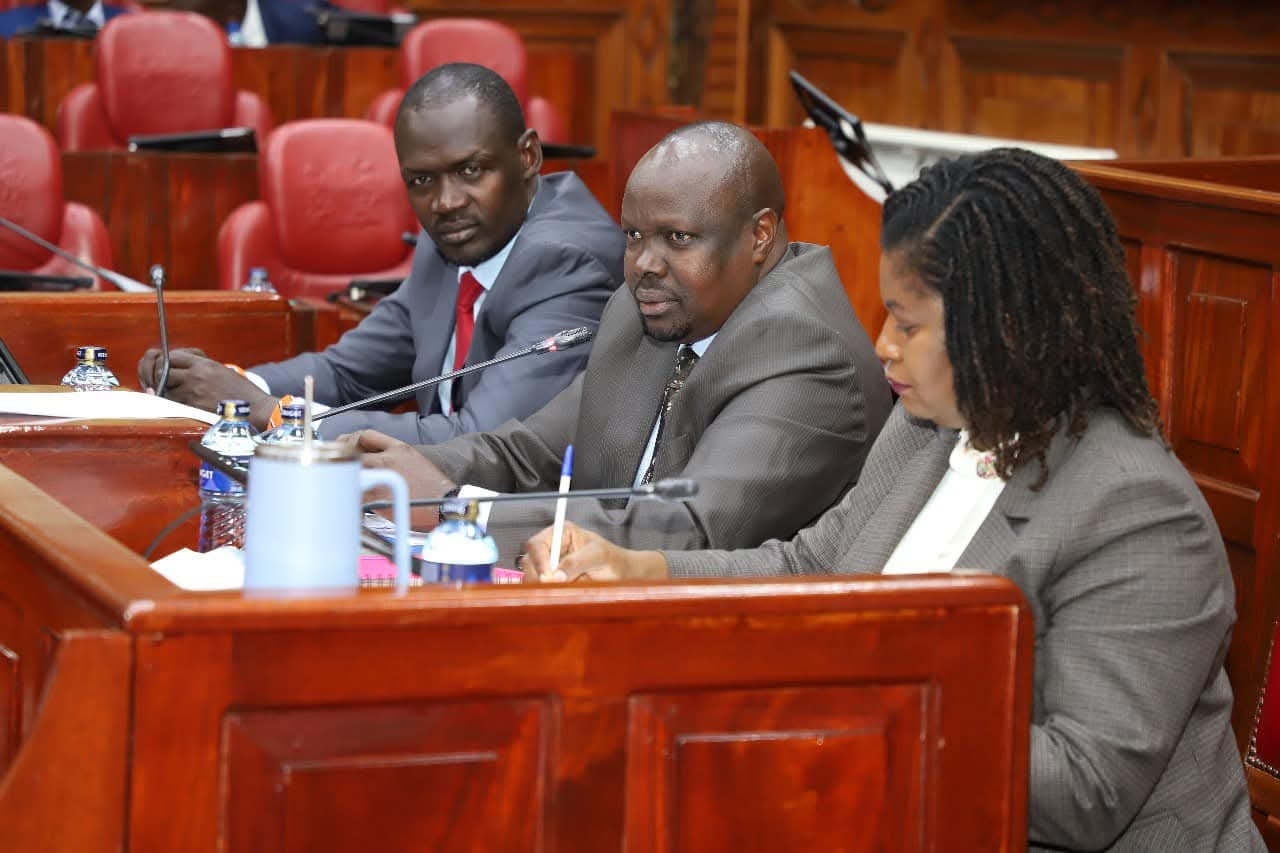 Public Investments Committee on Commercial Affairs and Energy sitting. Photo by PBU
Public Investments Committee on Commercial Affairs and Energy sitting. Photo by PBU
By Andrew Mbuva
A high-stakes round-table meeting convened by the Public Investments Committee on Commercial Affairs and Energy was abruptly postponed on Tuesday, August 12, 2025, after the National Treasury failed to appear, drawing sharp condemnation from Members of Parliament.
The session, held at County Hall, Parliament Buildings, had been set to deliberate on the unresolved Kshs. 30 billion debt owed to Kenya Power and Lighting Company (KPLC) for the Rural Electrification Scheme (RES).
Legislators expressed outrage over what they described as the Treasury’s persistent neglect of energy infrastructure in rural and marginalized communities.
Among the key stakeholders invited were officials from the Ministry of Energy, Kenya Power, and the National Treasury. However, only the Ministry of Energy honored the invitation, represented by the Principal Secretary, Alex Wachira.
The conspicuous absence of the National Treasury’s PS—who is the designated accounting officer—rendered the meeting inconclusive.
“This government does a lot in the social space even when it’s not commercially viable, because it’s a moral responsibility,” said Committee Chairperson David Kiplagat. “We have a two-page document from the PS Treasury saying the Kshs. 30 billion owed to KPLC is not commercially viable to fund. That is an insult to the government’s last-mile agenda.”
The Committee had planned to address the chronic power outages in remote regions caused by failing lithium batteries and inadequate fuel infrastructure at mini-grid stations. Areas cited include Elwak, Kakaba, Mfangano Island, Fatuma Solar in Mandera, Halado, and Fiba in Wajir—all still grappling with power blackouts.
Vice Chairperson John Ariko (Turkana South) accused the Treasury of sabotaging the rural electrification agenda.
“Treasury owes KPLC Kshs. 30 billion and now tells us they will only ‘consider’ repayment in the next fiscal year. Is it because they walk around with money in their pockets?” Ariko posed. “These are not just statistics. These are real people still living in darkness.”
Nyeri Town MP Maina Mathenge emphasized the constitutional duty of the Treasury to respond to audit queries and provide financial accountability.
“This matter is not a joke. The PS Treasury should have addressed these issues long ago. It’s unacceptable to profile regions and say they are not viable for electrification. That’s not just wrong, it’s shameful,” he stated.
The Committee is currently reviewing Auditor General reports on KPLC and the Kenya Electricity Transmission Company Limited (KETRACO) for the financial years 2018/2019 to 2022/2023.
The reports flag a number of issues, including outstanding receivables, stalled power projects, and unresolved wayleave compensation claims affecting major transmission lines such as Ndhiwa–Sondu and Narok–Bomet.
Committee Chair David Pkosing (Pokot South) reiterated that Parliament would not stand by as rural communities continue to suffer from energy poverty.
“We are not here to defend KPLC, REREC, or any Ministry. We are here to defend the people of Kenya. We will not allow a culture of musical chairs while citizens suffer in the dark,” he said.
Pkosing further warned the National Treasury that failure to appear in the rescheduled session next Tuesday would attract severe parliamentary sanctions.
“This Committee is not a rubber stamp. We are elected to serve the people of Kenya. If the PS doesn’t show up, we will escalate this. We want solutions, not excuses.”
Members of the Committee also decried what they described as “retrogressive behavior” by energy sector players at a time when Kenya is working to achieve universal electricity access under Vision 2030.
They vowed to hold the National Treasury accountable for what they described as deep institutional cracks in the financing of rural electrification projects—insisting that critical infrastructure development should never be dismissed as commercially unviable.